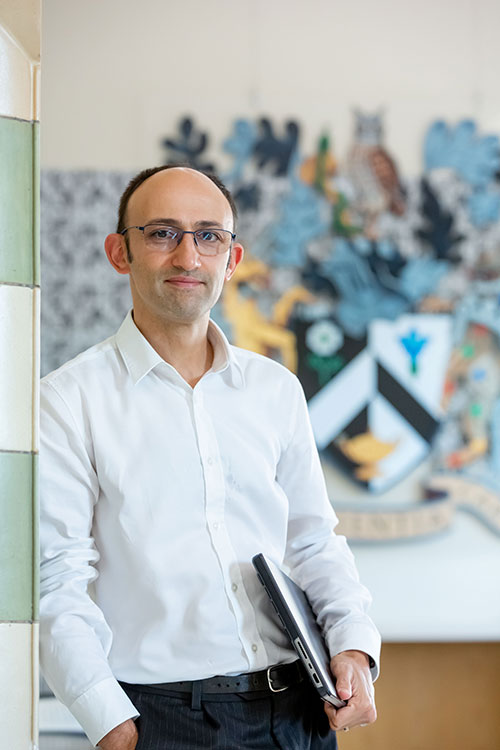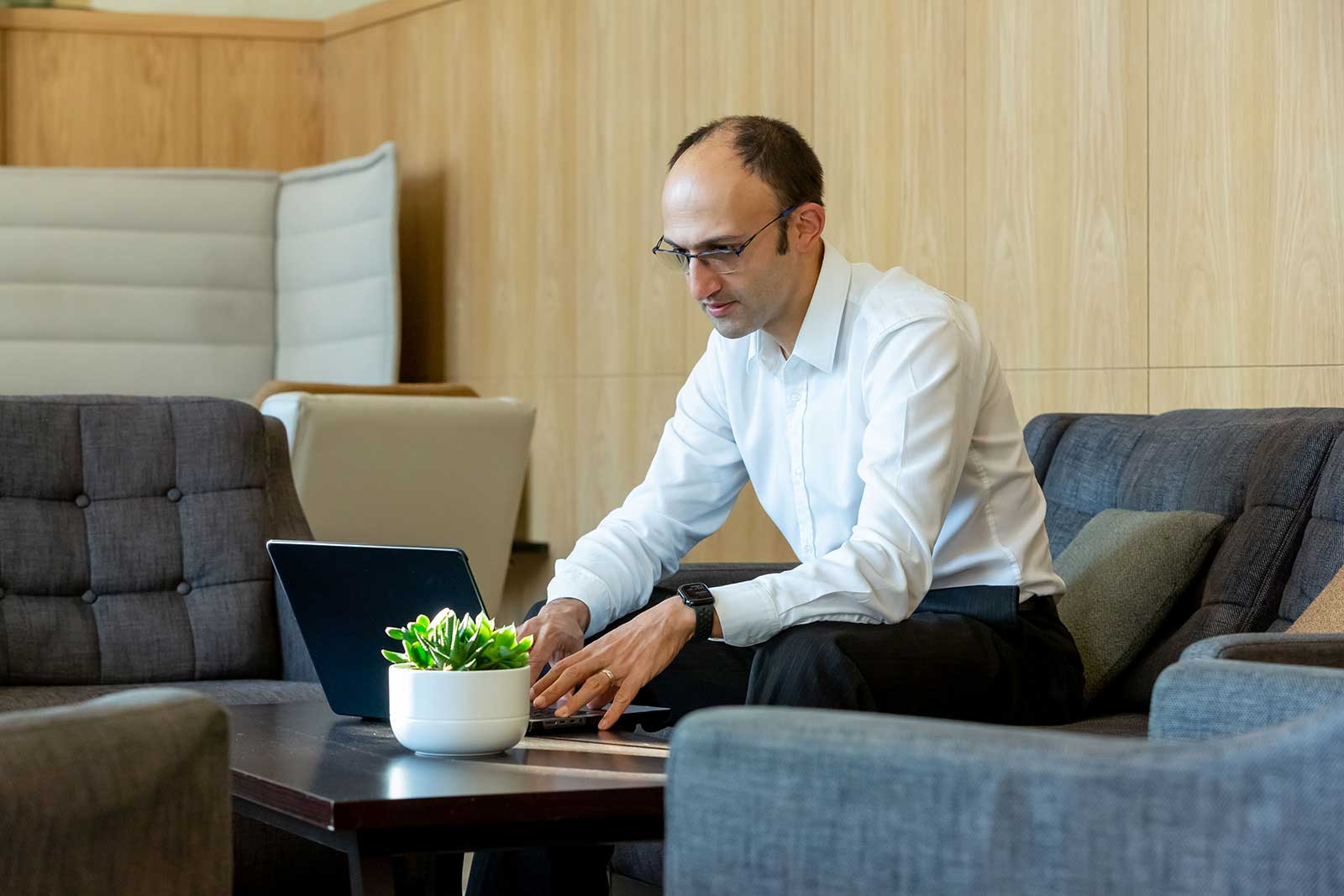

Dr Imran Khan is well placed to span the worlds of general practice and health informatics. The current Chair of the RCGP Heath Informatics Group had a substantial career in IT before medicine came calling.
His first degree was in computer systems engineering at Cardiff University, followed by a career in defence systems engineering. “I enjoyed the intellectual challenge,” he says, “but as time went on, I struggled with the ethical dilemmas of defence work. I realised medicine was still what I really wanted to do.”
It is unsurprising that after becoming a GP in 2017, he became involved in clinical informatics fairly rapidly with a particular interest in patient online services and information governance. Currently – alongside his GP work – he is Primary Care Informatician with National Services Scotland and Clinical Digital Lead for the Berkshire, Oxfordshire and Buckinghamshire ICB leading on digital transformation and primary care.
He is sitting at the intersection of two fields that have seen dramatic changes in recent years.
People outside general practice do not realise how complex it is for GPs to manage their IT systems, he says.
“Then you've got all these national data flows, local data flows, shared care records. It is hugely complex and stressful for GPs.”
A key problem but also a key enabler of general practice is that they maintain oversight of the data, he explains. “The data controller aspect, especially when you have so many things coming at you is very difficult.”
While the profession has long highlighted the burden placed by QOF on practices, in particular the impact on the time GPs have to spend with patients, it has greatly improved the data quality in patient records, he notes.
“If we're going to use data for research, for population health management, to do all this population segmentation work, we need high quality data. The GP record in the UK is the most valuable clinical record in the world, it spans your lifetime and there’s nothing else like it.”
One of the biggest issues he highlights is making sure GP practices, secondary care, and community services can all access each other’s patient records. The ICB he works in is one of the few that has managed to put a more complete shared patient record in place.
There are many reasons why this is not standard across the country not least that competing systems have to integrate as well as technical and financial considerations. But the biggest stumbling block he sees is information governance. “There’s so many perceived risks – and real risks - and it is really hard to address. There’s a clear patient benefit, but I think that’s sometimes not understood in weighing up those risks.”
Working in out of hours, he can have a better view of the patient than colleagues in general practice because he has access right across the system. “It makes a huge difference with how you manage risk.”
He sees this type of integration as being more realistic than a single patient record. As co- chair of the Joint GP IT Committee – a collaboration between the RCGP and BMA introduced after the 2003/2004 GMS contract – he does get presentations from Government on their plans in this area, which is interesting but “early days”, he says.

Imran is also medical advisor at Medicus, a new entrant to the GP IT market, which he sees personally as an exciting challenge but for practices is about providing better choice.
While national strategies talk about AI and digital transformation, Imran is quick to highlight the everyday frustrations that undermine confidence in IT. “It’s not unusual for me to arrive half an hour early just to start my computer,” he admits. Slow systems, clunky logins, and basic infrastructure failures add to the stress of already over-stretched clinical days.
Imran is wary of hype around AI, for example tools that automatically generate consultation notes as a way to ease workload.
“We’ve never really tested what that means. When I write my notes, it helps me think, remember, and communicate with colleagues. If AI does it for me, what happens to the quality of the record?”
He is equally cautious about over-reliance on software and technology. “Patients want to talk to people. That human connection is what enriches consultations and no algorithm can replace it.”
As all this shows, the RCGP Heath Informatics Group has no end of issues to keep it busy. “The pace of change has accelerated since the pandemic,” Imran says. The goal should be to make technology serve patients, not the other way around.
Thank you for your feedback. Your response will help improve this page.
